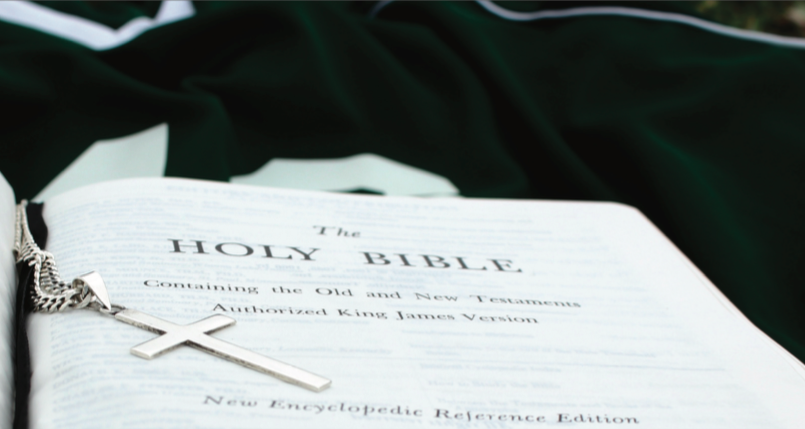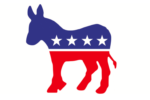Standing hand in hand, eyes closed and heads bowed, teammates pray. Some for safety, some for athletic success and some just trying to support the team. Religion and sports have a tendency to go side by side with each other on many teams, but where should the line be drawn?
In the eyes of many players, praying is a helpful pregame tradition for the team.
“It makes me feel good [to pray before a game], because I know who’s for me: God,” senior Kristian Eanes said.
Harper Johnson, a sophomore who plays football and lacrosse agrees.
“It has been a tradition most of my life playing football to say the Lord’s Prayer before every game,” Johnson said. “This year playing football we didn’t start out doing it, but some members of our team, including me, pushed to do it and it was welcomed by the whole team.”
Many students use the power of prayer to keep players safe, to feel empowered or just to feel united with their teammates.
“My team does [pray], but with my religion, [Catholic Baptist], I don’t always agree to what they’re praying for,” junior Tess Terll said. “So sometimes I will pray with them and sometimes I will not.”
Team unity is a large reason for many athletes to pray within their sports. When players at Northwood were asked if the player prays for religious beliefs or for team unity, 48 percent of the athletes said they prayed for religious beliefs and the other 52 percent said they prayed to be a teammate, to support others with their religious standings or to just feel at one with the team.
“We all pray together,” said senior athlete Arren Lee. “There are some people that are Atheist, Catholic or Christian, but I know everybody prays together as a family.”
Although praying may provide a safe family environment for some, if you go against the values of the majority of the team, others may feel excluded.
“When my team is praying I feel very excluded and not together with the team,” an anonymous junior said. “While they are praying I quietly stand to the side because I don’t believe in what they are praying about and I feel like I shouldn’t participate. Sometimes I feel like the team is judging me and that is very difficult.”
Praying has become a tradition for many people in many different sports all across the US. The Oklahoma City Thunder and the Carolina Panthers are currently the only two professional teams to hold pre-game invocations.
Many teams take a moment to pray before games, but some coaches take it a step farther.
Joe Kennedy, a high school assistant football coach from Seattle, was fired for praying on the field. Kennedy had prayed before and after games since 2008 and sometimes was joined by his athletes. The Bremerton School District did not want to be seen as endorsing any religious activity and asked him to stop when the issue came to their attention last year. Although asked to stop, he protested by silently taking a knee and praying. The students and faculty brought in different religious groups to help fuel his protest.
Some Christian high schools are fighting for their ability to have a prayer read aloud before their football games.
Florida’s Cambridge Christian School was denied the ability to read aloud a prayer before their game and was denied by the Florida High School Athletics Association to do so. The head of the FH- SAA, Dr. Roger Dearing, defended the decision in an email.
“In Florida Statutes, the FHSAA (host and coordinator of the event) is legally a ‘State Actor,’ we cannot legally permit or grant permission for such an activity.”
However, is praying in public schools really allowed? According to the Chatham County Athletic Association’s book, as long as students lead the prayer and nothing is lead or forced upon athletes by the coach, students have the freedom to pray.
Some athletes believe that this rule is fair because it avoids the feeling of being pressured or compelled to pray by the coach.
“I don’t think [coaches] should be able to [pray for their team] because I don’t think that they should be able to impose their religion on other people,” junior soccer player Quade Zimmerman said. “We make it a choice if it’s the players, but not if it’s the coach. He has more authority, so he gets to say what goes and what doesn’t.”
Public schools have rules in place so that students don’t feel obligated to change or compromise their personal beliefs. Coaches have to be cautious to follow public school rules.
“I will tell them, ‘Alright let’s get in for prayer,’” football coach Brian Harrington said. “I let the guys know that if they are offended by prayer they are more than welcome to exclude themselves from the prayer [with] no penalty. Nothing will be said against them.”
– Emma Taylor & Natalie Womble



